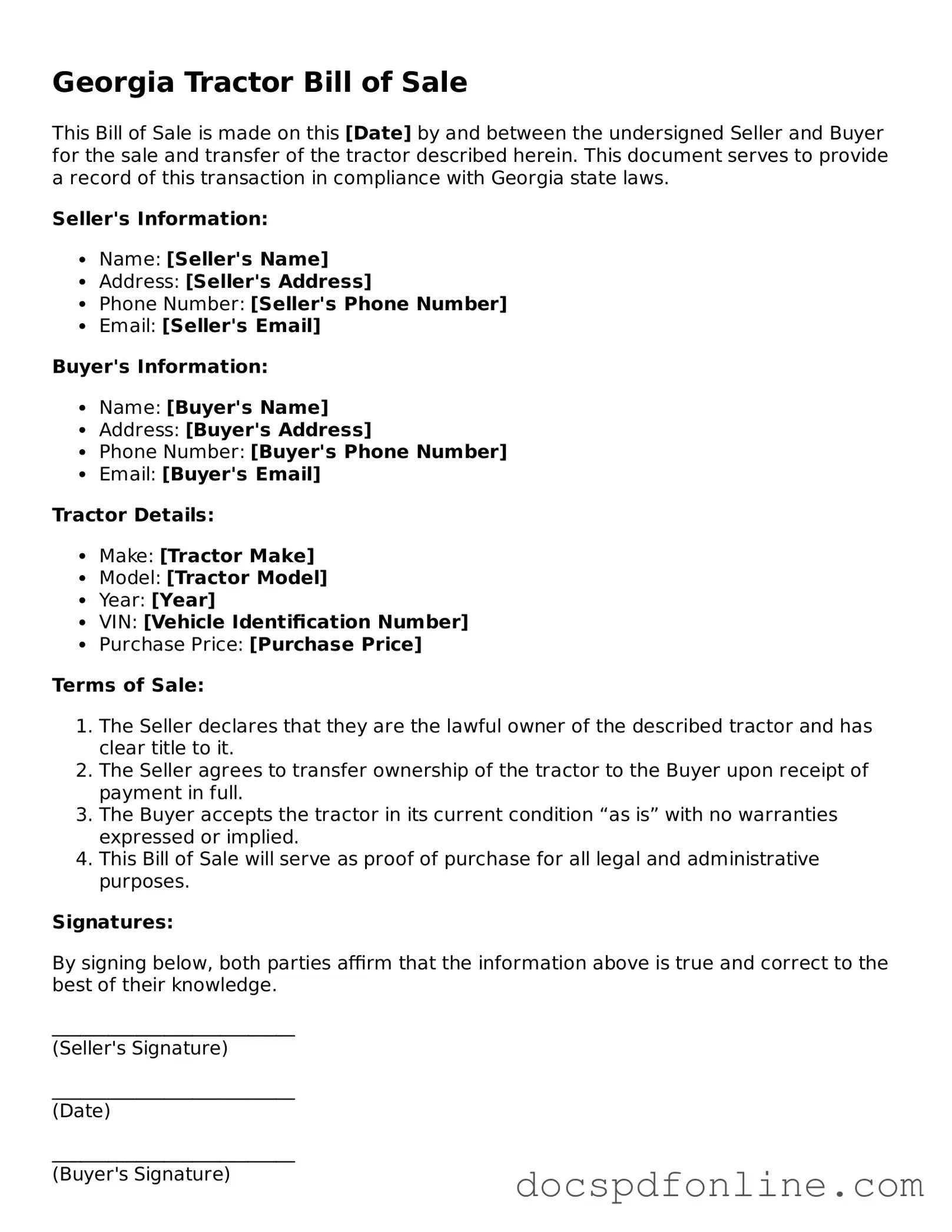Legal Tractor Bill of Sale Template for Georgia
The Georgia Tractor Bill of Sale is a legal document that records the transfer of ownership of a tractor from one party to another. This form serves as proof of the transaction and outlines essential details such as the buyer and seller's information, the tractor's description, and the sale price. Understanding this document is crucial for both buyers and sellers to ensure a smooth and legally binding transfer of property.
Launch Editor Now

Legal Tractor Bill of Sale Template for Georgia
Launch Editor Now
Save time — finish this form fast
Finish Tractor Bill of Sale online — edit, save, download made easy.
Launch Editor Now
or
↓ PDF File
